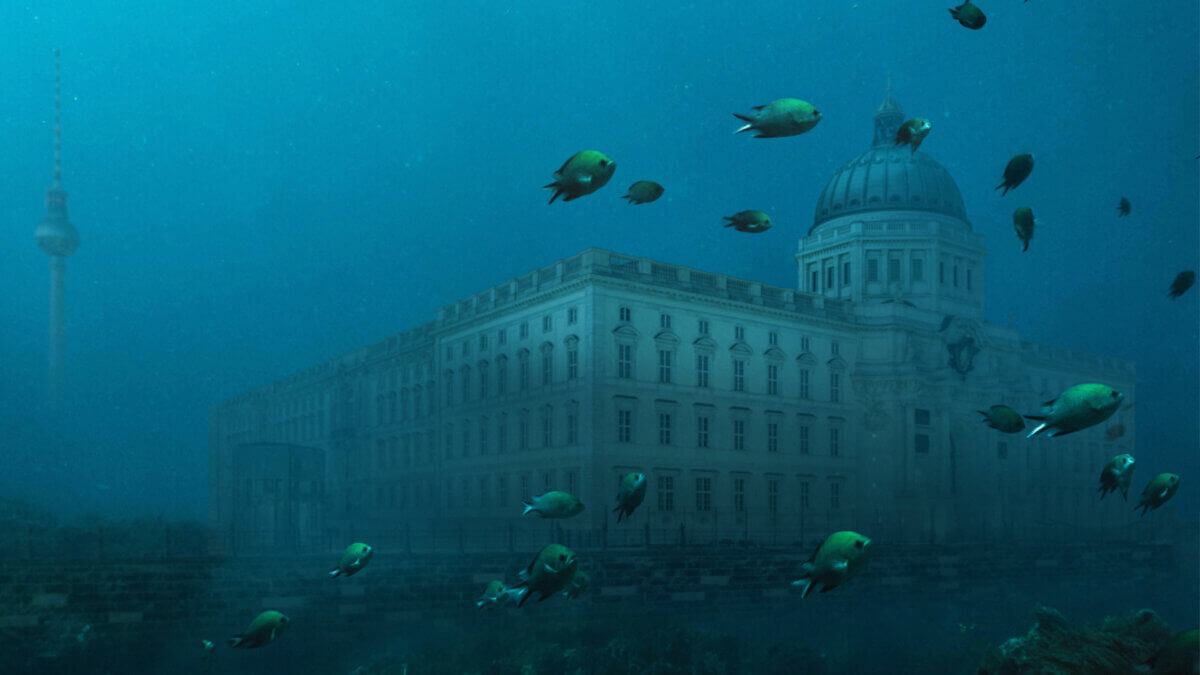-
Calendar
-
Public guided tours
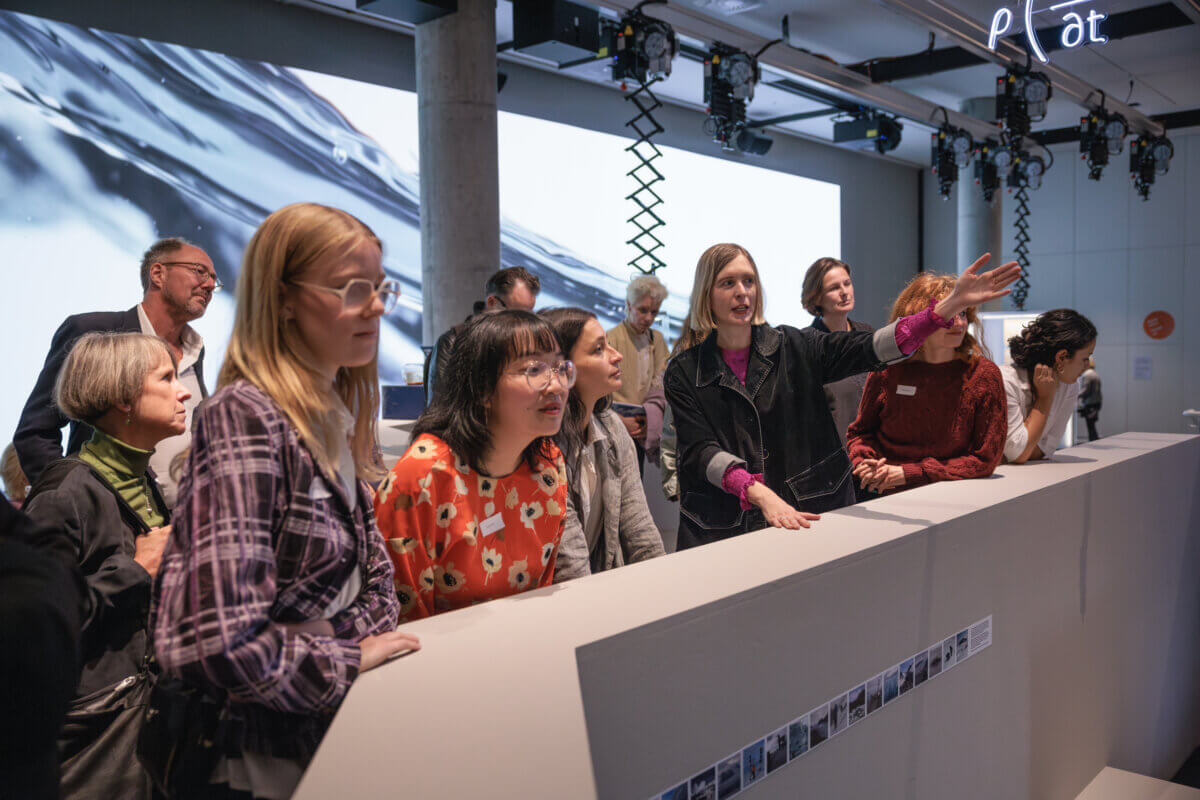
“On Water” – Overview Tour
Show more Show lessWater is life, but it can also be destructive. The exhibition ‘On Water. WasserWissen in Berlin’ showcases current research projects on the topic of water by the Berlin University Alliance (BUA), a consortium of Berlin’s leading universities.
During the tour, visitors will gain an overview of the diverse range of water research in Berlin.
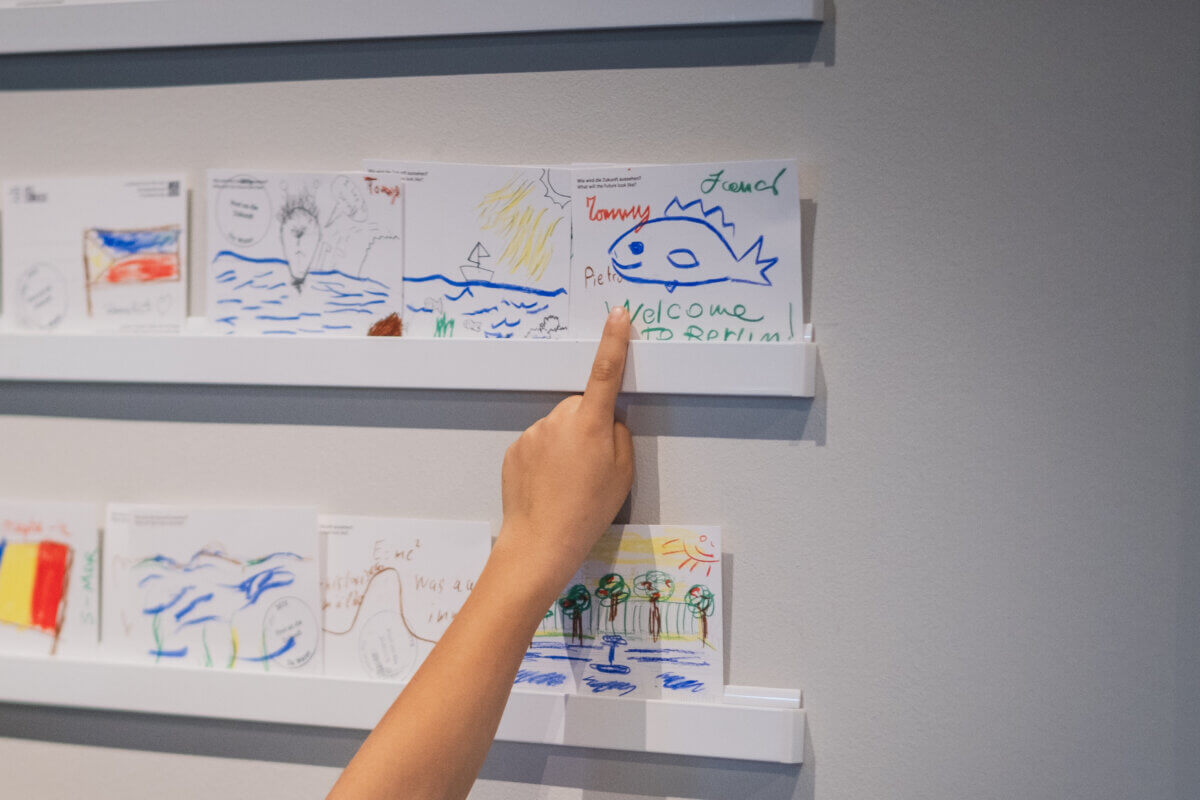
“On Water” – Family Tour
BookingShow more Show lessWhat does it sound like when a tree drinks? How are people around the world coping with increasing drought? What does a puddle researcher do? And how do you study water on Mars?
The exhibition ‘On Water’ at the Humboldt Laboratory showcases research projects by Berlin scientists on the topic of water. In a 60-minute tour that takes them from the sea to an artificial iceberg to the stars, children and families learn about the diversity of scientific research on the wet element and the water-related challenges in times of climate crisis.
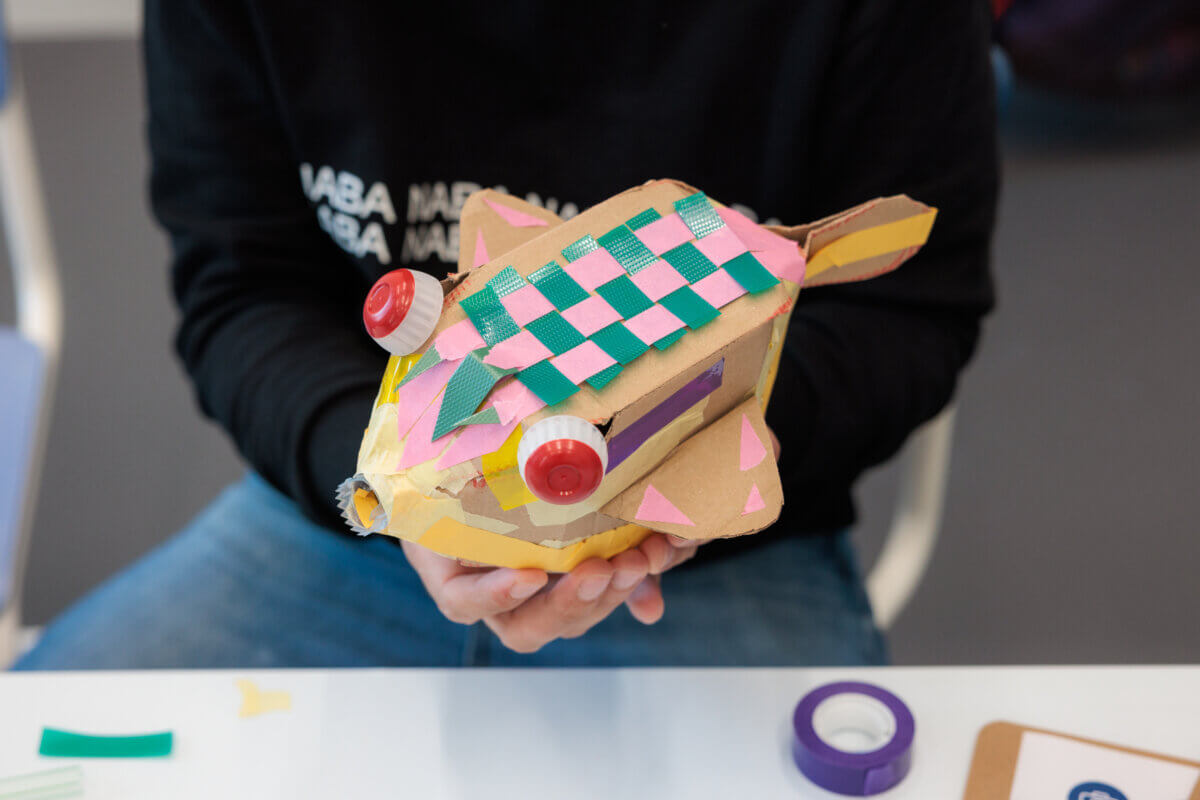
“WaterCreatures” – Creative Workshop for Kids and Families
BookingShow more Show lessJellyfish, whales, penguins and boxfish: many fascinating animals live on, in and under water. Some of them are featured in the science exhibition ‘On Water’. In a creative workshop, children aged 6 and above – accompanied by their parents or another adult – can recreate a selection of aquatic creatures (with the help of instructions) and contribute their own design ideas. Discarded materials from the Humboldt Forum are used. Exciting and funny, but also sustainable animals are created, which can be taken home at the end.
Participation is free of charge and registration is not required.
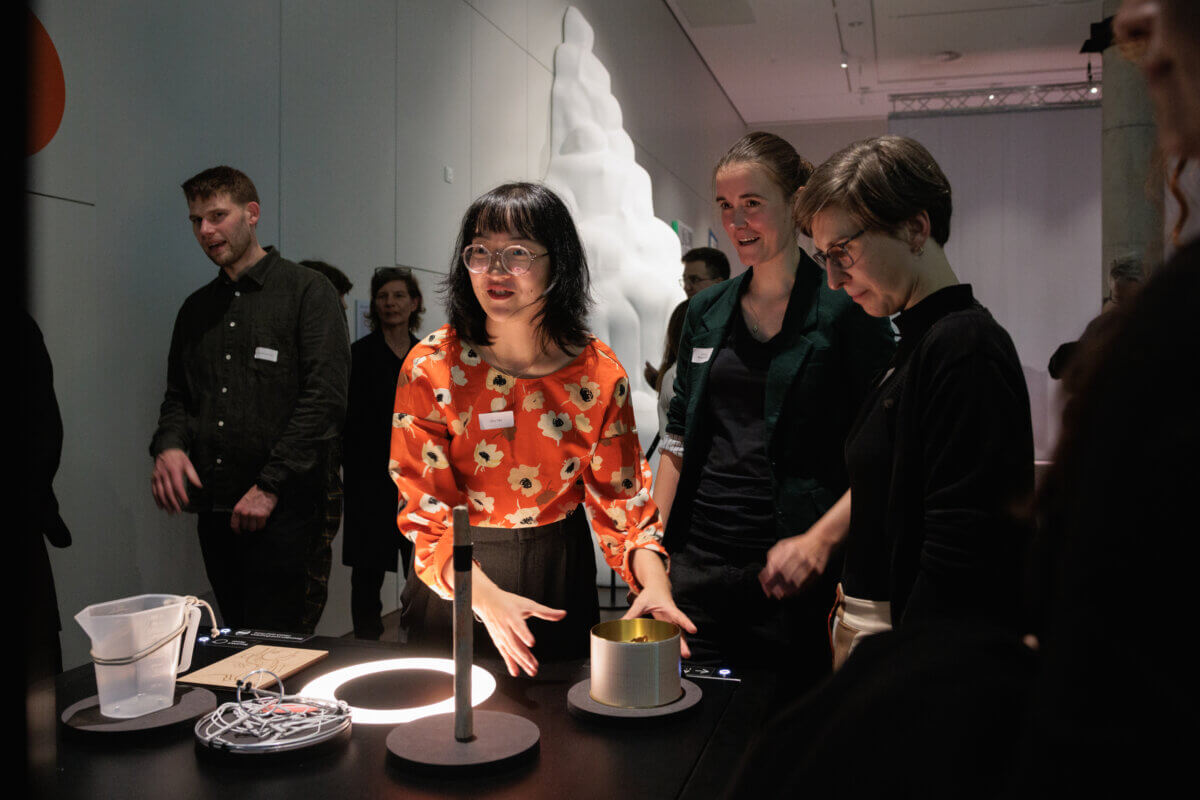
“On water” – Acoustic and Tactile Tour
BookingShow more Show lessWhat does it sound like when a tree drinks? How can water be extracted from the air in extreme drought conditions? And what instruments do water researchers actually use? The exhibition ‘On Water’ presents a wide range of Berlin-based research projects on water.
The 120-minute inclusive audio and tactile tour conveys the exhibition content in a multi-sensory way.
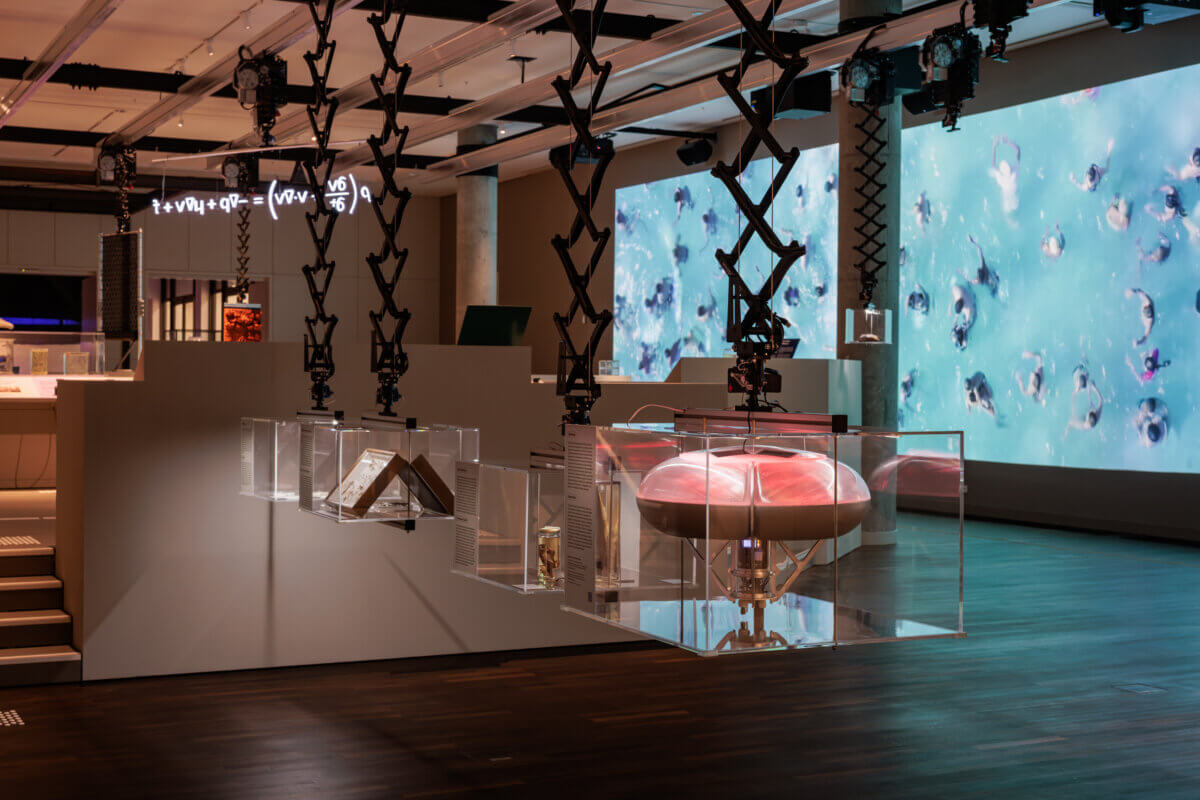
“On Water” – Guided Tour in German Sign Language
BookingShow more Show lessWhy do rivers need rights? What was a wave pool swing used for? And why is Lusatia so important for Berlin’s water supply?
The exhibition ‘On Water’ presents a variety of Berlin-based research projects on water. In the 90-minute inclusive tour, the exhibition content is conveyed in German Sign Language (DGS).
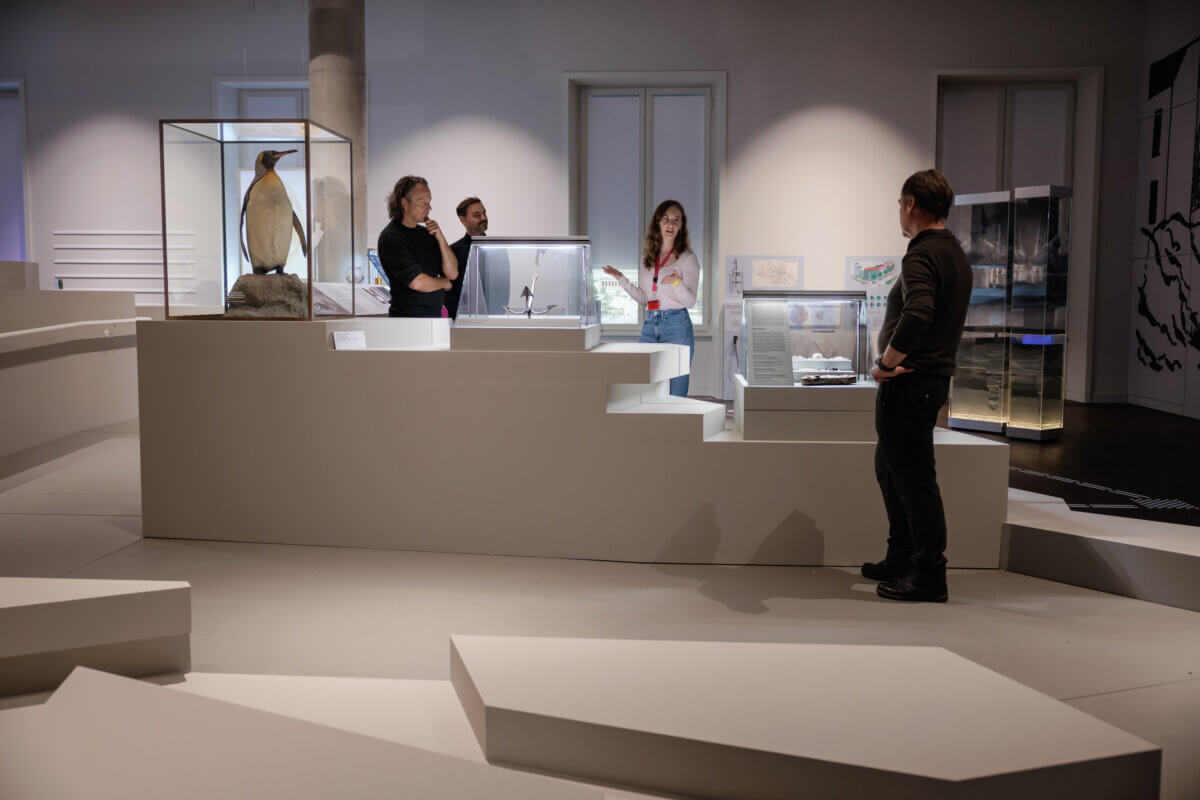
“On Water” – Guided Tour in German Simple Language
BookingShow more Show lessMany scientists in Berlin are conducting research on water. Some researchers are interested in aquatic animals. Some are searching for water in space. Others are investigating how glaciers are melting due to global warming.
The exhibition ‘On Water’ presents a wide range of research projects related to water. The guided tour in simple language provides information on what is being researched and why.
-
Events
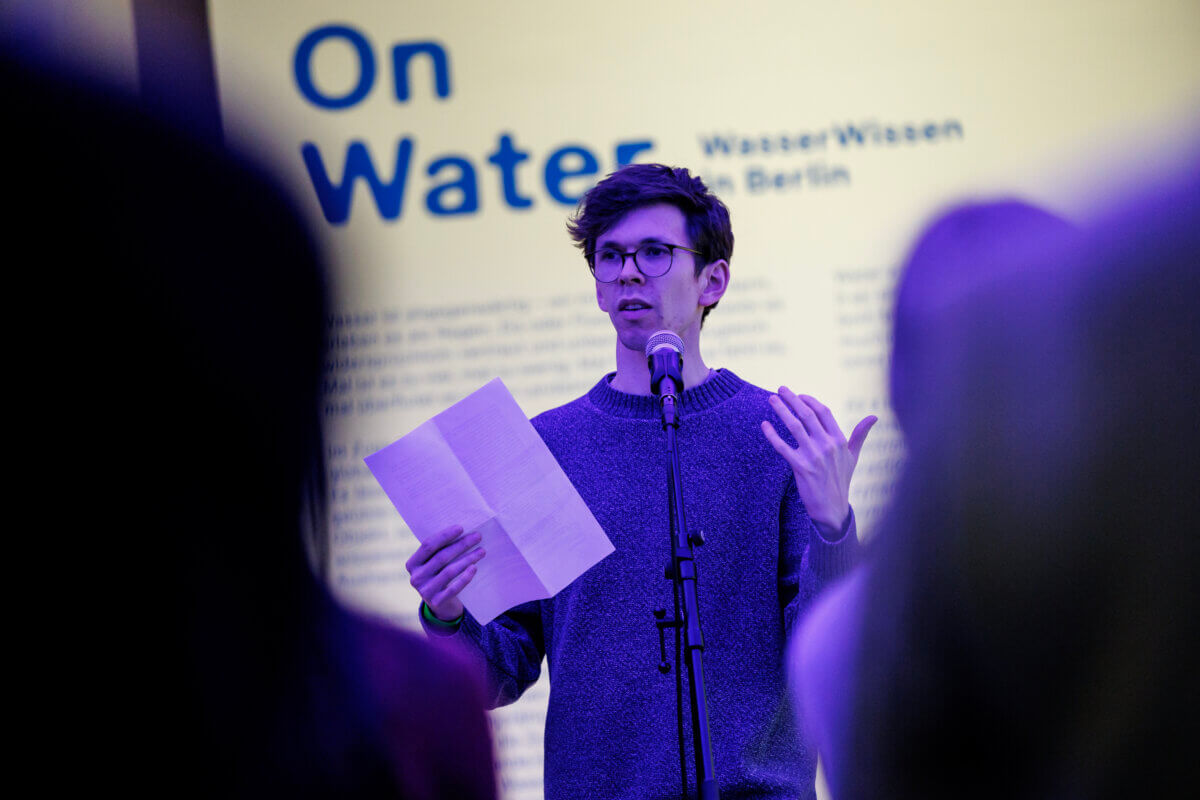
#Logoskop
more infosPoetry and Science
Show more Show lessOnce a month since 2021, the Humboldt Lab has been hosting artistic freedom to shake up the scientific point of view. Equipped with a microphone and amplifier, two slam poets stroll through the exhibition “On Water. WasserWissen in Berlin” to recite texts. Between a digitally animated jellyfish dome, a fifteen-metre-wide cinematic water experience, the 200-year-old relief of the Swiss Alps and a glass of water as if from Mars, visitors are taken on a “verballistic flight” through the science exhibition.
The changing artist duos of #Logoskop transform images from microscopes and periscopes around the world into a poetic show. They offer a deliberately subjective, heretical, humorous look at the exhibits.
If science is queen in the Humboldt Lab, then the #Logoskop is her court jester. With surprise, provocation and anarchic wordplay, the exhibition “On Water” will be both explored and taken for a ride.
The #Logoskop is curated and moderated by Bas Böttcher, the first German poetry slam champion.
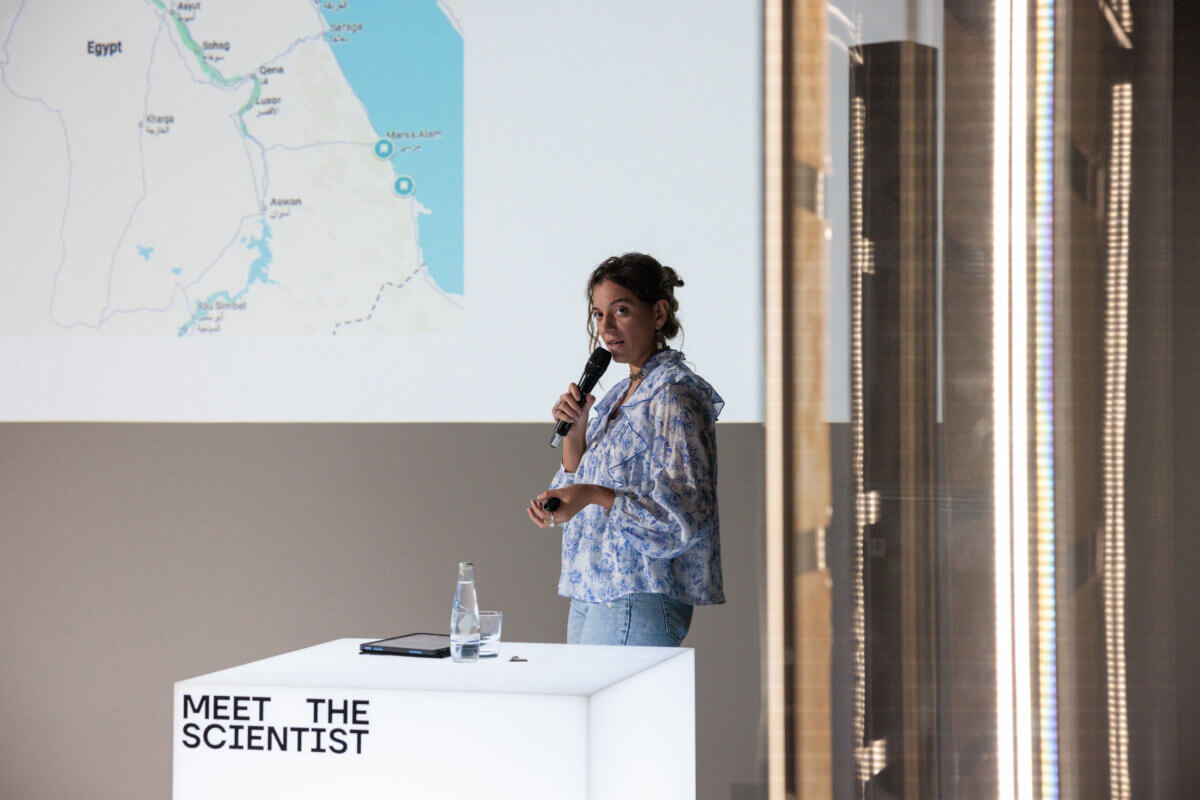
Meet the Scientist
more infosDialogues with scientists
Show more Show lessWhat is puddle research? Why does a river need rights? What happens when water becomes scarce – or disappears completely? And what can we learn from water reservoirs in the Himalayas? In the new Humboldt Lab series “Meet the scientist”, scientific researchers present their work. Visitors are offered insights into current scientific projects of different disciplines and are welcome to talk to researchers on an eye-to-eye level.
The series takes place in the Humboldt Lab during normal opening hours. Researchers will give short introductions to their projects and are then open to visitors’ questions. Some of them will speak freely, others will work on research installations or talk about specific objects in the exhibition. All visitors of the exhibition “On Water. WasserWissen in Berlin” are welcome to participate. Admission is free of charge.
-
Bookings for schools
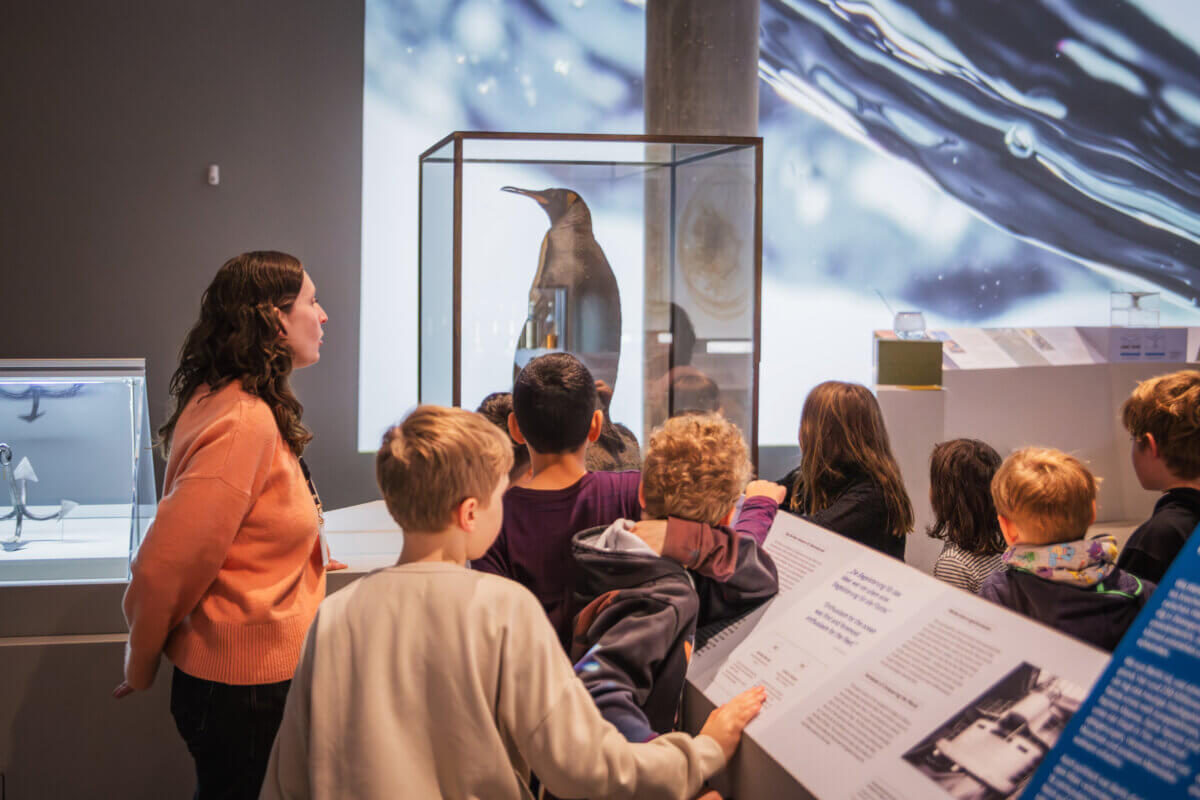
“On Water” – Guided Tour for Schools
Show more Show lessWhat does it sound like when a tree drinks? How are people around the world coping with increasing drought? What does a puddle researcher do? And how do you study water on Mars? The exhibition ‘On Water’ at the Humboldt Lab showcases research projects by Berlin scientists on the topic of water. In a 60-minute tour that takes them from the sea to an artificial iceberg to the stars, students learn about the diversity of scientific research on the wet element, water as a medium for migration and mobility, and water-related challenges in times of the climate crisis.
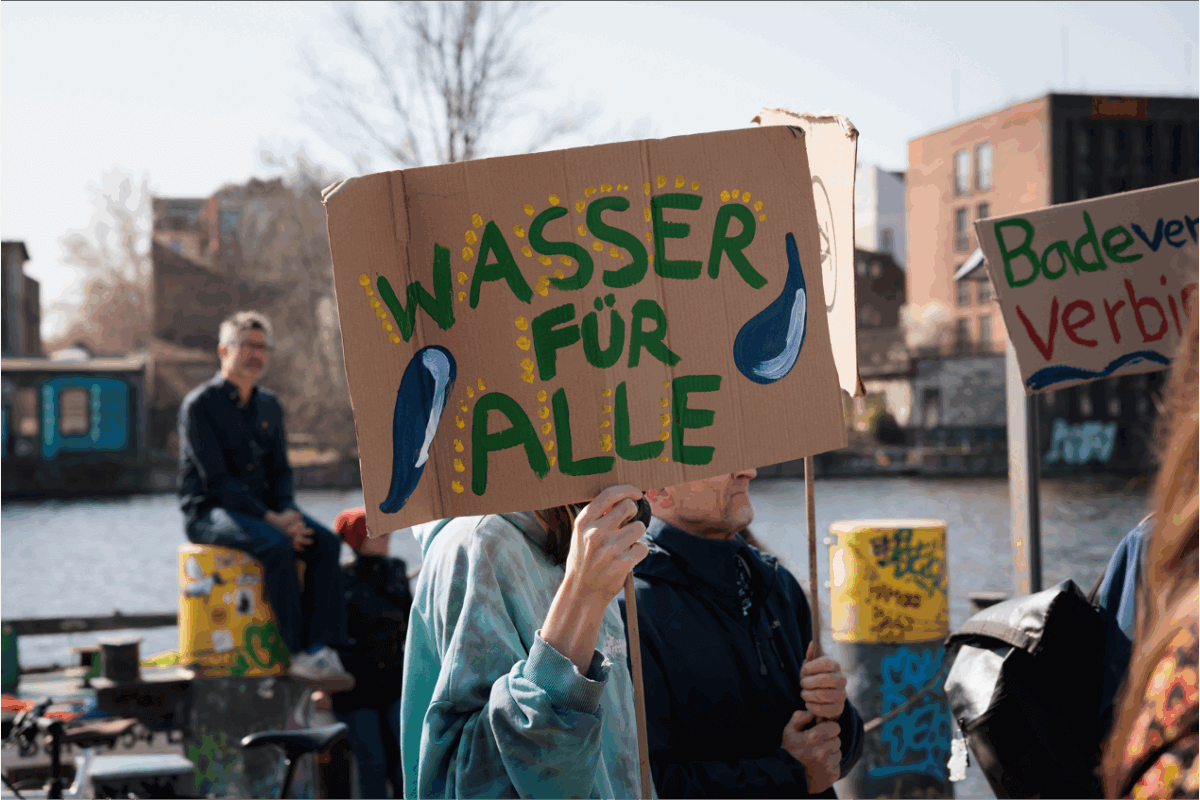
WaterKnowledge Workshop
Show more Show lessIn a workshop, students can explore the challenges facing the River Spree in times of climate change. Why is Berlin at risk of running out of water? What can be done to live more sustainably on and with our waters? After a short introductory tour of the exhibition “On Water”, the pupils slip into the role of social actors themselves and try to represent different positions on water.
-
Bookable for adults
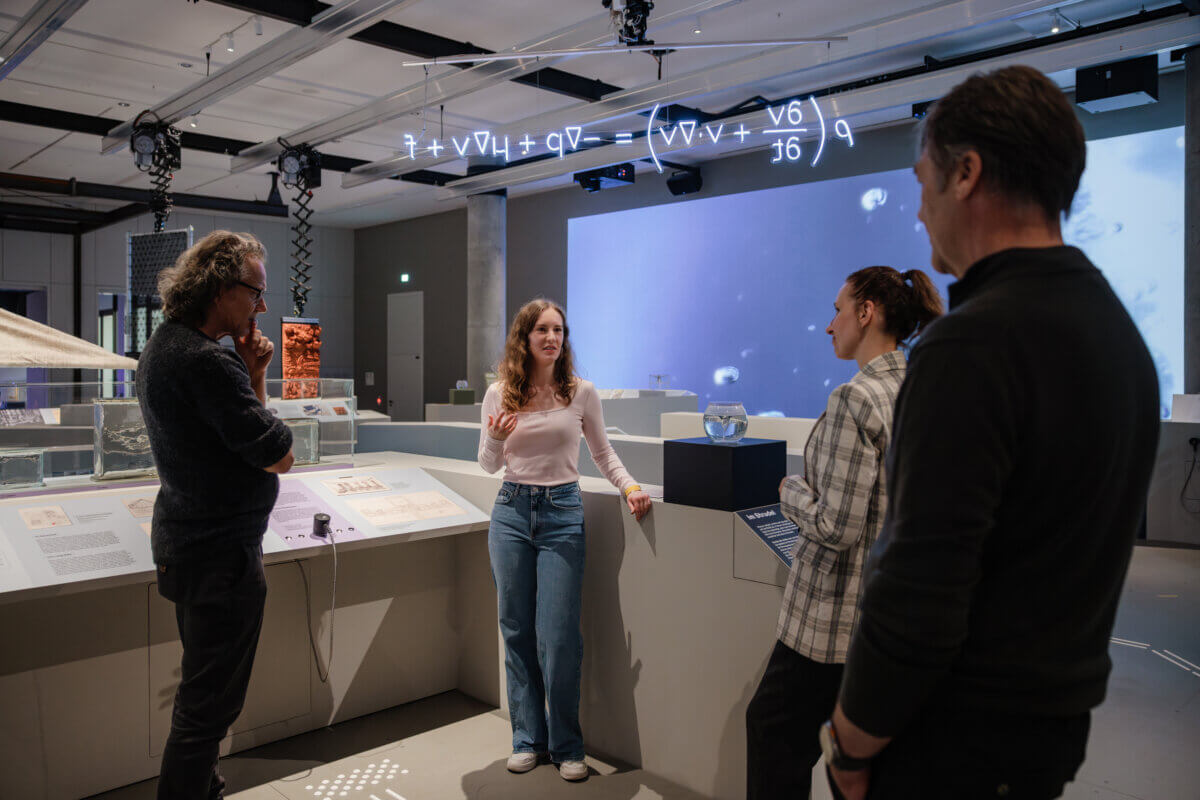
“On Water” – Bookable Tour
BookShow more Show lessWater is life, but it can also be destructive. The exhibition ‘On Water. WasserWissen in Berlin’ showcases current research projects on the topic of water by the Berlin University Alliance (BUA), a consortium of Berlin’s leading universities.
During the tour, visitors will gain an overview of the diverse range of water research in Berlin.
